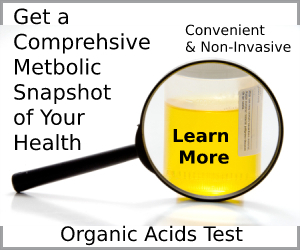The definition of holistic health may vary depending on what practitioner you are talking to and their perspective. In my view, it’s a wellness approach that addresses the body, mind and spirit or the physical, emotional/mental and spiritual aspects of an individual. By spirit or spiritual, I am not making a reference to anything religious. We’re talking about the essence of who you are — the core self.
Traditional medical doctors treat the body and ignore the mind, conventional mental health professionals treat the mind and ignore the body. Neither one of them address the spiritual. Both of them treat symptoms with drugs or surgery rather than looking for what causes the symptom.

A holistic health approach doesn’t view the body, mind and spirit as separate entities and promotes drugs and surgery only when absolutely essential and after other solutions have been sought. It looks for the underlying causes of symptoms, rather than just covering up the symptoms with a drug.
The body, mind and spirit are not independent of one another. They are intertwined. What affects one affects the others. A philosophy that focuses on only one aspect is an incomplete approach.
The definition of holistic health may encompass many different elements depending on which field of thought you’re dealing with. It is sometimes referred to as complimentary health, alternative health or natural health. These terms are often, but not always interchangeable. A treatment approach can be complimentary, alternative or natural without necessarily being holistic. However, most holistic approaches are considered to be complimentary, alternative or natural.
Treatment approaches are highly individualized for the unique needs of each individual and the patient and their practitioner make decisions together as partners to develop the health care plan.
Many different kinds of health practitioners embrace a holistic health approach. Mental Health Counselors, educators, chiropractors, naturopaths, doctors of environmental medicine, homeopaths, dentists and even some medical doctors are becoming enlightened. Holistic nursing is a field that is growing fast in popularity.
Within the holistic health concept you’re likely to find a variety of different treatment approaches. The focus may be on avenues such as environmental health, acupressure, nutritional counseling, massage, homeopathy, meditation, dietary changes, food allergies, vitamin supplementation, exercise, oxygen therapies, herbs, organic living to name a few.
There are a variety of holistic health organizations designed to advocate holistic health, inform the public, and assist practitioners that can help you achieve a better understanding of holistic principles and guide you to the resources you may desire.
A definition of holistic health would not be complete without highlighting the fact that wellness approaches in the holistic field are considered to be wholesome, healthy and not harmful or toxic to the individual or the environment. They promote balance and harmony for the individual, society and the planet.
A holistic approach encourages the individual to engage in self care and educate themselves about their health. It urges them be an active participant in their treatment and health care, rather than giving all the power to a health care provider.
Here at Holistic Help my focus is on improving mental, physical and spiritual health issues through diet, nutrition, changes in lifestyle and awareness of environmental toxins.
You’ll find a variety of holistic self care strategies and alternative health advice intended to enlighten and empower. Being healthy does not necessarily mean the absence of disease or illness. It is about living as completely and optimally as possible with the hand you have been dealt and the limits that you face, while at the same time pursuing options that will improve your hand.
